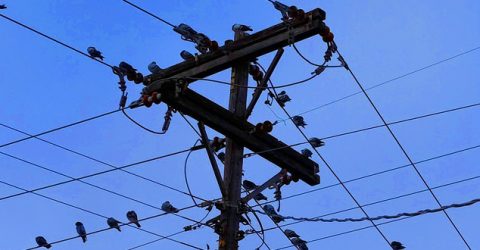Which broadband provider is best in my area?

You’ll often hear discussions about the UK’s best and worst broadband providers, but any national guide is flawed by definition.
The United Kingdom comprises four nations with vastly divergent geography, from sparsely-populated Scottish islands to the flatlands of East Anglia.
A 4G cell tower in central Leeds will be able to serve a far wider area than an identical tower in the Brecon Beacons, and reach many more people than a tower in the Norfolk countryside.
In fact, local broadband availability often varies from one street to the next.
While 85 per cent of UK businesses can access Virgin Media’s fibre optic cables, only 60 per cent of residential homes are connected to a network that often stops midway along a road.
Legacy hardware further blunts the efficacy of ‘ultrafast’ fibre cabling up to those green local broadband exchange boxes, such as copper cables between the exchange and nearby homes.
That’s before considering customer service, which varies according to factors ranging from line speed and reliability to the expertise offered by local contact centres and engineers.
Fortunately, it’s easier to measure and rate definitive attributes, such as cost and speed.
Best for cost
Although contract prices are advertised nationally, regional variations occasionally come into play.
Some broadband companies use door-to-door salesmen in certain areas, with scope to offer incentives to anyone signing up on the spot.
Other firms might offer referral bonuses for people signing up colleagues or neighbours.
Even so, a subscriber in Glasgow should expect a comparably priced package to a customer in Aberystwyth or Armagh.
You’ll find details of the latest offers and incentives right here on BroadbandDeals.co.uk.
Best for speed
As well as price and incentives, our website details average line speeds achievable from each company operating in a particular area.
However, choosing an optimal local broadband provider is hardly straightforward.
Homes on opposite sides of the same street might potentially receive different internet speeds from the same provider, depending on issues like proximity to the nearest cabinet exchange.
Major broadband providers also use postcode search tools to accurately predict to-the-premises speeds.
(It’s important to separate this from to-the-cabinet speeds, which are subsequently throttled en route to our homes by distance and the use of old-fashioned copper cabling.)
If you’re looking for a new provider in an existing property, run a diagnostic test to determine current line speeds.
Visit your existing provider’s website to see what they claim is attainable at your address, and bear this in mind while investigating claims by key rivals.
Most providers rely on the same Openreach cabling, leading from the local exchange to your master phone socket.
Even Sky distributes broadband into our homes along phone lines, rather than through its own satellite dishes.
The exceptions to this delivery model are Virgin Media and 4G mobile broadband providers, whose speeds might actually eclipse some older hardwired networks.
Again, mobile providers should be able to predict realistic average speeds in a particular location, based on the infrastructure they’re able to call upon in that area.
The Hull paradox
For historic reasons, Hull has its own unique telecoms network, which means competition isn’t allowed.
That gives Kingston Communications (also known as KCOM) a monopoly on fixed-line local broadband.
Fortunately for locals seeking greater choice, mobile network signal strength is generally strong across Humberside – so 4G mobile internet represents a viable alternative.
Satellite broadband is another option, albeit at considerable cost.
Unlike Sky, this involves a receiver specifically designed to receive broadband signals from 22,000 miles above the Equator.






